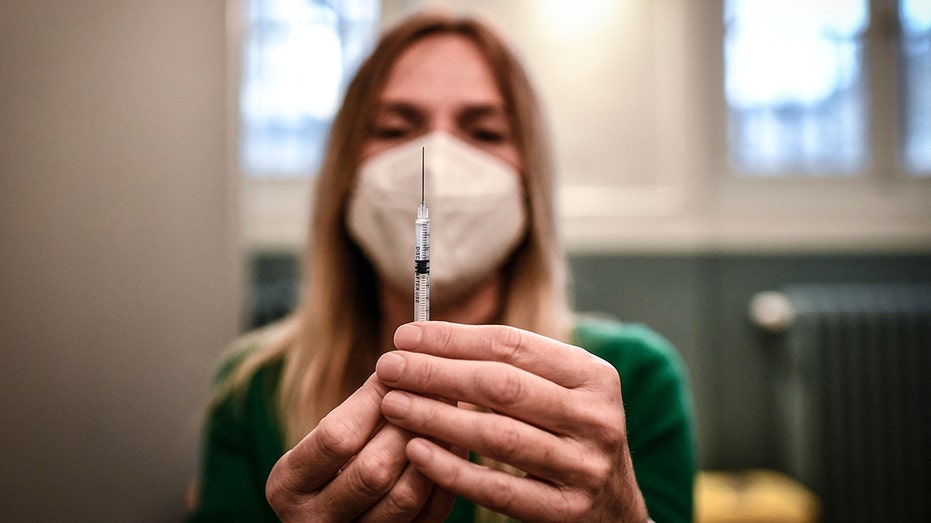Biden administration plans for end of COVID-19 shot, treatment coverage — WSJ
End of government underwriting of such medicines could lead to windfall for drugmakers
Biden signs bipartisan bills aimed at stopping COVID-19 loan program fraud
Biden signs bipartisan bills aimed at stopping COVID-19 loan program fraud.
The Biden administration is planning for an end to its practice of paying for COVID-19 shots and treatments, shifting more control of pricing and coverage to the healthcare industry in ways that could generate sales for companies — and costs for consumers — for years to come.
The Department of Health and Human Services plans to hold a planning session on Aug. 30 that will bring together representatives from drugmakers, pharmacies and state health departments with a stake in a COVID-19 treatment industry.
HEALTH CARE WORKERS FIRED OVER VACCINE MANDATE AWARDED $10 MILLION IN SETTLEMENT
Both the Trump and Biden administrations always planned to shift the bill for COVID-19 shots and treatments from the federal government to individuals eventually. With COVID-19 cases dropping, more activities resuming and funding for the pandemic response running short, officials are now working to map out that transition.
Shifting payments for COVID-19 drugs and vaccines to the commercial market is expected to take months, an HHS spokesman said. At the meeting this month, officials and company representatives will discuss reimbursement and coverage, regulatory issues and access to vaccines and treatment for the uninsured.
"We've known at some point we'd need to move over into the commercial market, and we're approaching that time now," said Dawn O'Connell, assistant secretary at HHS for preparedness and response. "We don't want to do it by fiat."

A medical staff member prepares a syringe with a dose of the Pfizer-BioNTech COVID-19 vaccine at a temporary vaccination center in Paris, on Nov. 27, 2021, amid the COVID-19 (novel coronavirus) pandemic. (Stephane De Sakutin/AFP via Getty Images / Getty Images)
The change presents challenges including how to make shots and treatments available to the roughly 30 million people without insurance coverage. The federal government has been purchasing Covid-19 vaccines and treatments and making them available at no cost during the pandemic.
"There are issues of reimbursement, equitable access to vaccines and treatment, and distribution that need to be resolved," said Anne McDonald Pritchett, senior vice president at Pharmaceutical Research and Manufacturers of America, or PhRMA, an industry trade group.
FORMER ACTING CDC DIRECTOR: AMERICA NEEDS A PUBLIC HEALTH AGENCY THAT THEY CAN TRUST AND RESPECT
The change also portends billions of dollars in potential profits for pharmaceutical companies such as Moderna Inc. and Pfizer Inc. as well as its partner BioNTech SE. Pfizer reported $8.1 billion in global sales during the second quarter for its Covid-19 treatment, Paxlovid.
As of February, companies including Pfizer and Moderna had reported at least $79 billion in combined global sales of Covid-19 vaccines and treatments for 2021, according to a Wall Street Journal review of earnings reports.
| Ticker | Security | Last | Change | Change % |
|---|---|---|---|---|
| MRNA | MODERNA INC. | 49.70 | +3.10 | +6.65% |
| PFE | PFIZER INC. | 26.86 | -0.49 | -1.80% |
| BTNX | NO DATA AVAILABLE | - | - | - |
The administration had requested as much as $30 billion from Congress for antivirals, testing and shots against future variants, among other measures. Republicans said no new money should be allocated until existing COVID-19 relief funding was spent.
As of mid-February, no money was left in HHS's public-health and social-services emergency fund for healthcare providers. The administration in August stopped supplying monoclonal antibody treatments. Eli Lilly & Co. has shifted to commercial sales of its COVID-19 monoclonal antibody treatment to states, hospitals and other healthcare providers. The administration has already signed purchase agreements for updated vaccine doses for the fall.
| Ticker | Security | Last | Change | Change % |
|---|---|---|---|---|
| LLY | ELI LILLY & CO. | 1,023.26 | +3.32 | +0.33% |
Switching vaccine purchasing to the commercial market will mean that each insurer and pharmacy benefit manager will be negotiating with drug manufacturers and prices will likely be higher than what the federal government has paid, said Larry Levitt, executive vice president for health policy at the Kaiser Family Foundation. Insurers will have to start paying for the vaccines, he said, likely raising premiums.
"Without the government purchasing vaccine doses in advance, the U.S. may fall behind other countries in getting quick access to boosters and new variant-specific vaccines," Mr. Levitt said.
CLICK HERE TO READ MORE ON FOX BUSINESS
Other challenges include the timetable each drug or vaccine manufacturer has for when they want to move into the commercial market. Also, Medicare and Medicaid, federal insurance programs for older and lower-income people respectively, don't cover antivirals because they are only approved under an emergency use authorization.
"We want to make sure everyone who needs access gets access," Ms. O'Connell said.




















